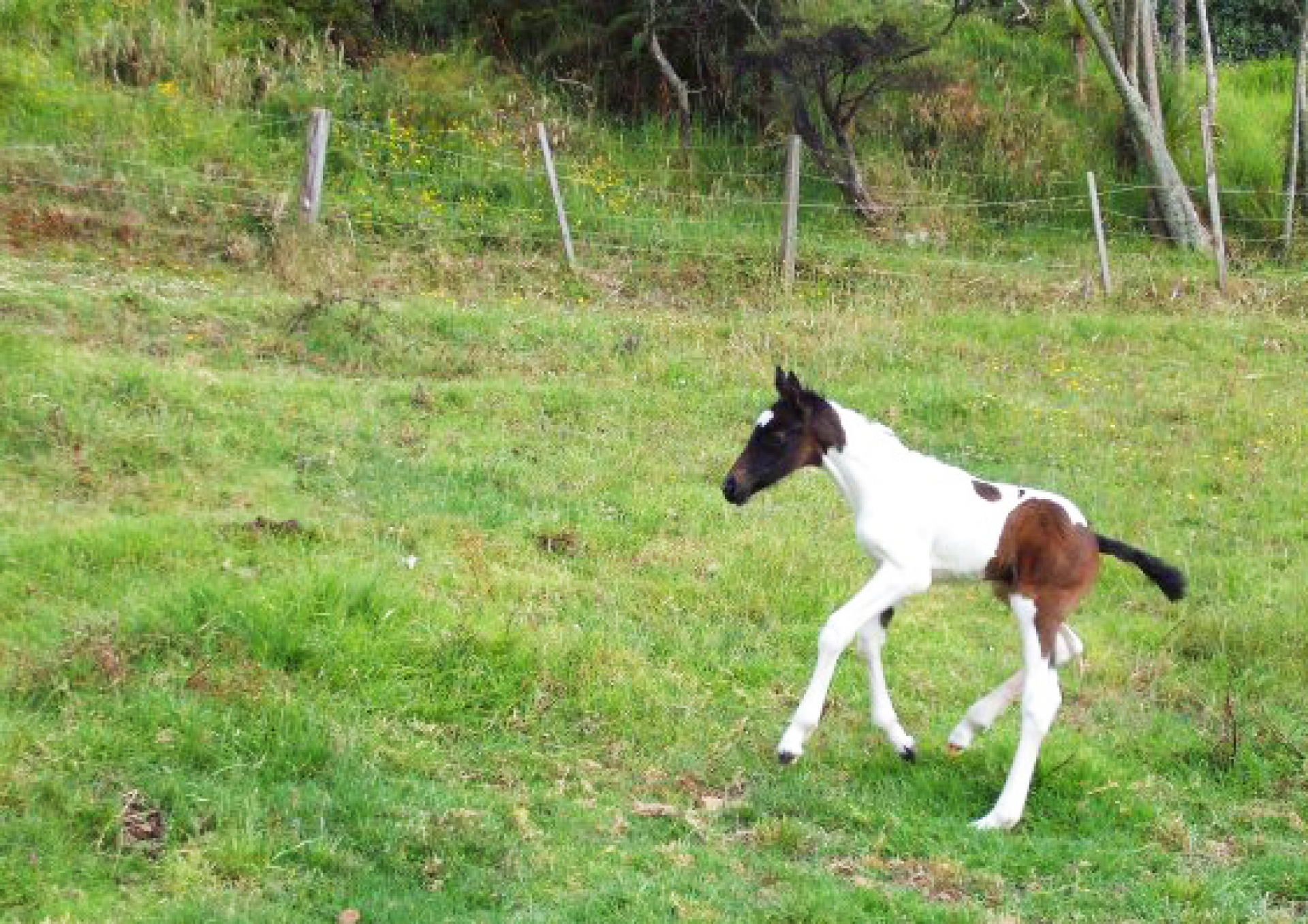
InFocus
Orphan Foals: Beyond the Stereotype
Nikki Addison -- Fri, 27-Nov-2015
Just as certain breeds of horse often fall under negative stereotypes - the most common being the ‘crazy’ Thoroughbred – so too do orphan foals. Typically, these motherless creatures are assumed to be rude, ill-mannered and pushy. Furthermore, it is commonly believed that their growth is stunted and they will therefore not reach a desirable height. While these stereotypes certainly do exist for a reason, as is usually the case, there are exceptions. Not all orphan foals are disrespectful and hard to handle, and nor do they all suffer from stunted growth. If reared correctly, these precious young animals can be just as well-behaved and physically developed as their counterparts who are raised by the mare.
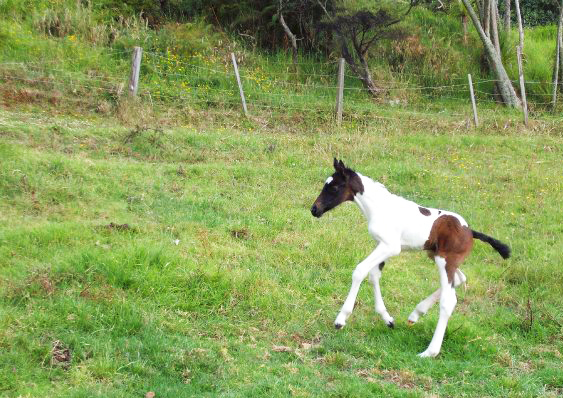
Baby Cody: two days old and counting!
In her article Feeding the Orphan Foal, certified riding coach, equine nutritionist and author Karen Briggs confirms this assertion. In respect to the latter, she acknowledges the general perception that orphan foals “will always be playing catch up with their peers, and end up stunted and unable to reach their full height or genetic potential.” However, when “raised with a correct balance of nutrients and monitored for growth, food consumption, and weight gain,” orphan foals can be “every bit as tall, strong, and athletic as foals raised by their dams.” Aucklander Sorrel Rushton’s gelding Cody is a testament to this fact. Sorrel was first introduced to Cody on Boxing Day, 2009, in what she calls a “devastating yet life-changing evening.” The excitement of welcoming Cody, a striking pinto colt, into the world was marred as Sorrel and her family had to “unexpectedly and heartbreakingly [say] goodbye to his mum, Tilly, who horribly prolapsed after giving birth to the foal we waited almost a year to meet.”
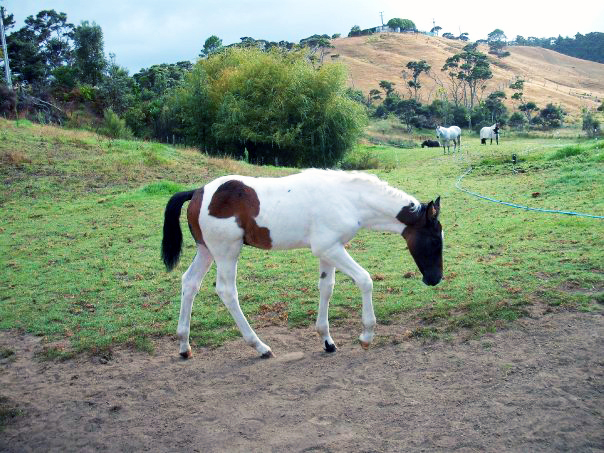
Growing up…a nine week old Cody.
Now rising six, Cody is a solidly-built 16hh gelding. Sorrel and her mother Sharron hand-reared him between themselves, which involved “two hourly feedings [and] comforting our new addition for the next six-plus months.” Maintaining a consistent feeding routine is extremely important, Sorrel notes, agreeing that “some foals, if not fed regularly enough or for long enough [do] result in stunted growth.” Ensuring that Cody received the correct nutrients and portions of milk (“we reared him on Anlamb milk powder”), and was weaned at the appropriate age, the mother-daughter team watched the attractive colt grow successfully into the impressive horse he is today.
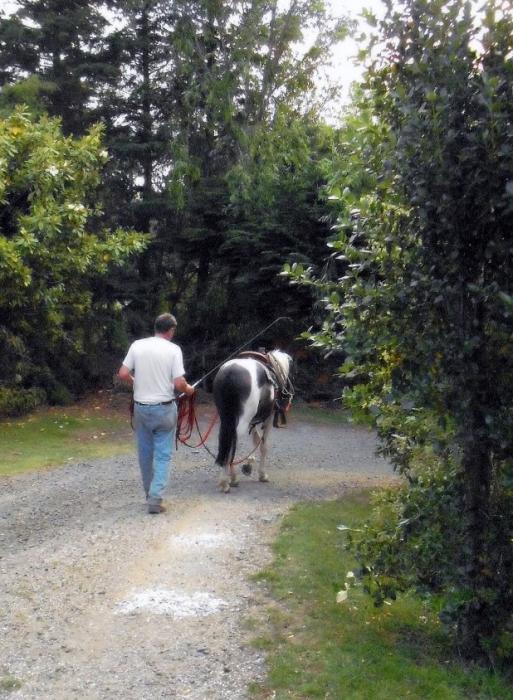
Training on the long rein.
Cody similarly proves that the orphan foal behavioural stereotype is just that – a stereotype. Hand-raising an orphan foal rather than finding a surrogate mother is more likely to result in poor manners, Briggs notes, as the foal’s “lack of equine social skills can make him a dangerous, spoiled brat.” This is easy to fix, however. If the foal is treated like a foal, rather than a human, he is able to develop the same skills as foals raised by the mare. Being introduced to other horses will help this process, asserts Briggs. Once the foal has been weaned – this can generally be done by four months – it should “be treated like any other weanling,” Briggs says, recommending exposing it to another farm animal, a horse or best of all, a herd.
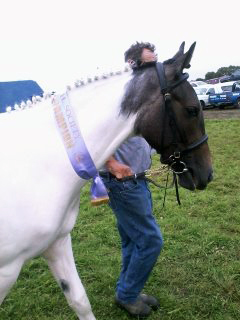
Cody with his Reserve Champion Ribbon at the Kumeu A&P Show, his first outing.
Cody was immediately paddocked with older mare Holly, who accordingly helped him get a grasp of the appropriate social skills. Not once has he been rude, disrespectful or bratty in any way. “He's not nasty or mean as people make orphans out to be; he's cheeky and incredibly intelligent,” Sorrel says. She admits that Cody is different to normal horses in the sense that he does at times thinks he is part human, part horse: “he loves the shed he lived in as a foal and stands in there when the weather is bad, staring at the other animals,” she laughs. “No doubt [he’s] thinking ‘what idiots they are standing out in the weather when there’s a shed here they could shelter under.’”
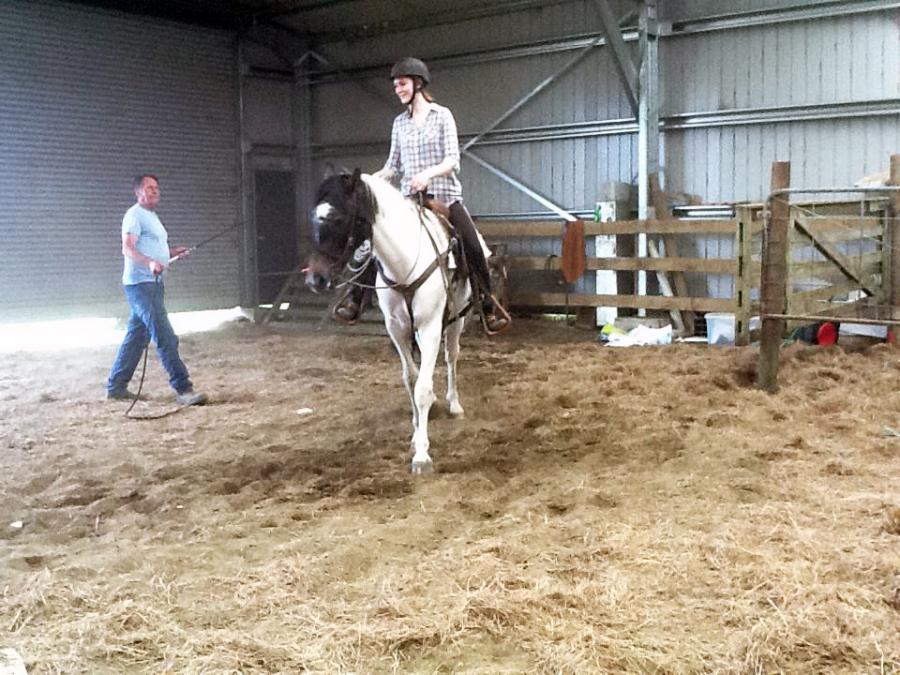
The first ride!
These harmless quirks aside, Sorrel insists that Cody has always been friendly, respectful and eager to learn. When it came to breaking him in he was a perfect gentleman, learning the ropes in just one week. The first time he was saddled he “didn’t move a muscle, like he had done it a million times before,” Sorrel says. Similarly, when he was first ridden he behaved perfectly. “No hunching or bucking…who would believe he [wasn’t] even two yet!”
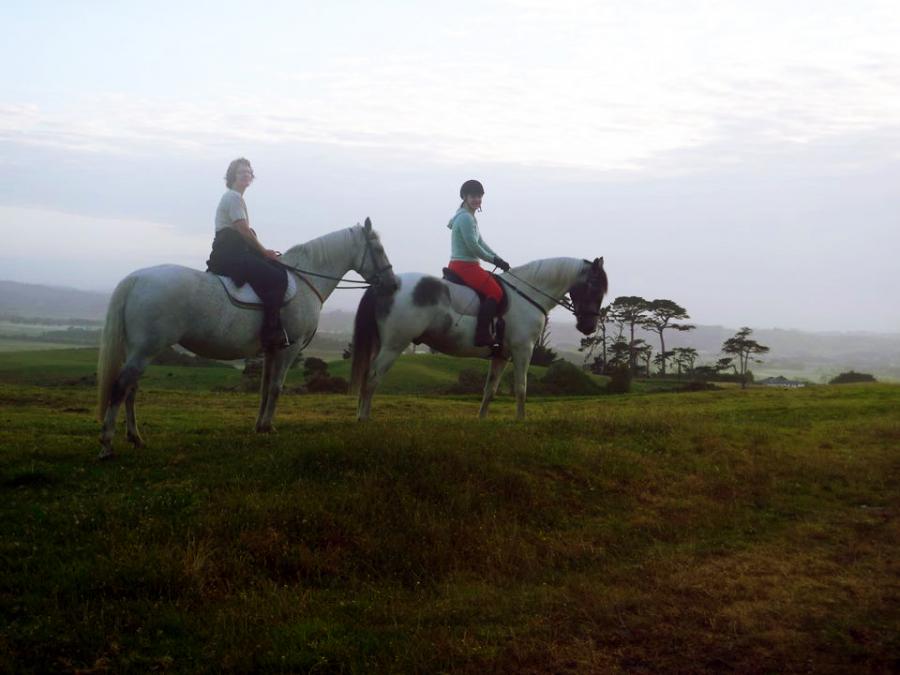
All grown up: Cody and Sorrel (right) and Sharron and Holly (left) on an early morning ride
As Briggs says, orphan foals “are by no means learning-impaired or ‘slower’ than their normally-raised compatriots - and physically, they should be indistinguishable from non-orphan foals.” Cody’s intelligence, receptiveness and mature physique are proof of this. Despite his easy start, Sorrel knows that, like any young horse, Cody still has a lot to learn. “[He] will take a lifetime to train as he bores easily unless every day is different,” she notes. Raising an orphan foal has, for Sorrel, been an incredible, transformative experience. “Cody has been the biggest learning curve and adventure I have, or will ever, endure as a horse owner…[he] has taught us so much about the horse’s brain and their beautiful personalities.” Ultimately, it is a hugely rewarding experience, and one which confirms that orphan foals can, and do, grow up to be just like their peers. “Life wouldn’t be the same without [Cody],” Sorrel says definitively. “Every day is an adventure, and long may it continue!”
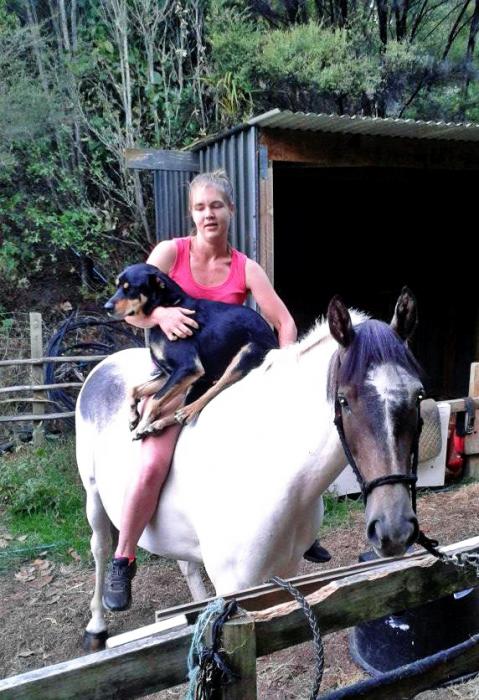
Sorrel, Cody and the family dog enjoying a moment.

